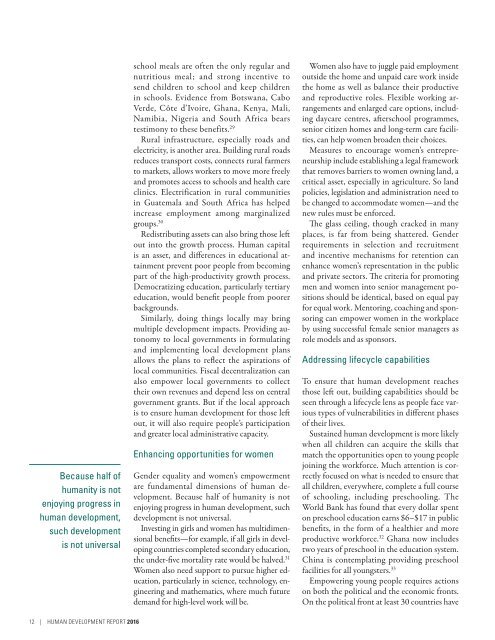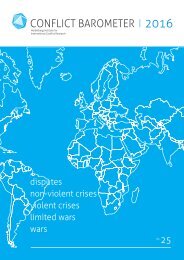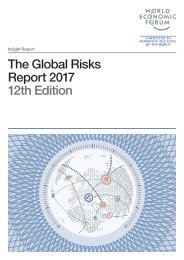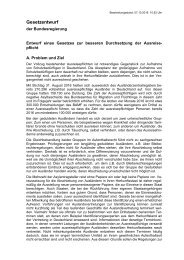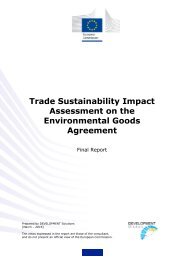Human Development Report 2016
6Tyccfrzw
6Tyccfrzw
You also want an ePaper? Increase the reach of your titles
YUMPU automatically turns print PDFs into web optimized ePapers that Google loves.
Because half of<br />
humanity is not<br />
enjoying progress in<br />
human development,<br />
such development<br />
is not universal<br />
school meals are often the only regular and<br />
nutritious meal; and strong incentive to<br />
send children to school and keep children<br />
in schools. Evidence from Botswana, Cabo<br />
Verde, Côte d’Ivoire, Ghana, Kenya, Mali,<br />
Namibia, Nigeria and South Africa bears<br />
testimony to these benefits. 29<br />
Rural infrastructure, especially roads and<br />
electricity, is another area. Building rural roads<br />
reduces transport costs, connects rural farmers<br />
to markets, allows workers to move more freely<br />
and promotes access to schools and health care<br />
clinics. Electrification in rural communities<br />
in Guatemala and South Africa has helped<br />
increase employment among marginalized<br />
groups. 30<br />
Redistributing assets can also bring those left<br />
out into the growth process. <strong>Human</strong> capital<br />
is an asset, and differences in educational attainment<br />
prevent poor people from becoming<br />
part of the high-productivity growth process.<br />
Democratizing education, particularly tertiary<br />
education, would benefit people from poorer<br />
backgrounds.<br />
Similarly, doing things locally may bring<br />
multiple development impacts. Providing autonomy<br />
to local governments in formulating<br />
and implementing local development plans<br />
allows the plans to reflect the aspirations of<br />
local communities. Fiscal decentralization can<br />
also empower local governments to collect<br />
their own revenues and depend less on central<br />
government grants. But if the local approach<br />
is to ensure human development for those left<br />
out, it will also require people’s participation<br />
and greater local administrative capacity.<br />
Enhancing opportunities for women<br />
Gender equality and women’s empowerment<br />
are fundamental dimensions of human development.<br />
Because half of humanity is not<br />
enjoying progress in human development, such<br />
development is not universal.<br />
Investing in girls and women has multidimensional<br />
benefits — for example, if all girls in developing<br />
countries completed secondary education,<br />
the under-five mortality rate would be halved. 31<br />
Women also need support to pursue higher education,<br />
particularly in science, technology, engineering<br />
and mathematics, where much future<br />
demand for high-level work will be.<br />
Women also have to juggle paid employment<br />
outside the home and unpaid care work inside<br />
the home as well as balance their productive<br />
and reproductive roles. Flexible working arrangements<br />
and enlarged care options, including<br />
daycare centres, afterschool programmes,<br />
senior citizen homes and long-term care facilities,<br />
can help women broaden their choices.<br />
Measures to encourage women’s entrepreneurship<br />
include establishing a legal framework<br />
that removes barriers to women owning land, a<br />
critical asset, especially in agriculture. So land<br />
policies, legislation and administration need to<br />
be changed to accommodate women — and the<br />
new rules must be enforced.<br />
The glass ceiling, though cracked in many<br />
places, is far from being shattered. Gender<br />
requirements in selection and recruitment<br />
and incentive mechanisms for retention can<br />
enhance women’s representation in the public<br />
and private sectors. The criteria for promoting<br />
men and women into senior management positions<br />
should be identical, based on equal pay<br />
for equal work. Mentoring, coaching and sponsoring<br />
can empower women in the workplace<br />
by using successful female senior managers as<br />
role models and as sponsors.<br />
Addressing lifecycle capabilities<br />
To ensure that human development reaches<br />
those left out, building capabilities should be<br />
seen through a lifecycle lens as people face various<br />
types of vulnerabilities in different phases<br />
of their lives.<br />
Sustained human development is more likely<br />
when all children can acquire the skills that<br />
match the opportunities open to young people<br />
joining the workforce. Much attention is correctly<br />
focused on what is needed to ensure that<br />
all children, everywhere, complete a full course<br />
of schooling, including preschooling. The<br />
World Bank has found that every dollar spent<br />
on preschool education earns $6–$17 in public<br />
benefits, in the form of a healthier and more<br />
productive workforce. 32 Ghana now includes<br />
two years of preschool in the education system.<br />
China is contemplating providing preschool<br />
facilities for all youngsters. 33<br />
Empowering young people requires actions<br />
on both the political and the economic fronts.<br />
On the political front at least 30 countries have<br />
12 | HUMAN DEVELOPMENT REPORT <strong>2016</strong>


